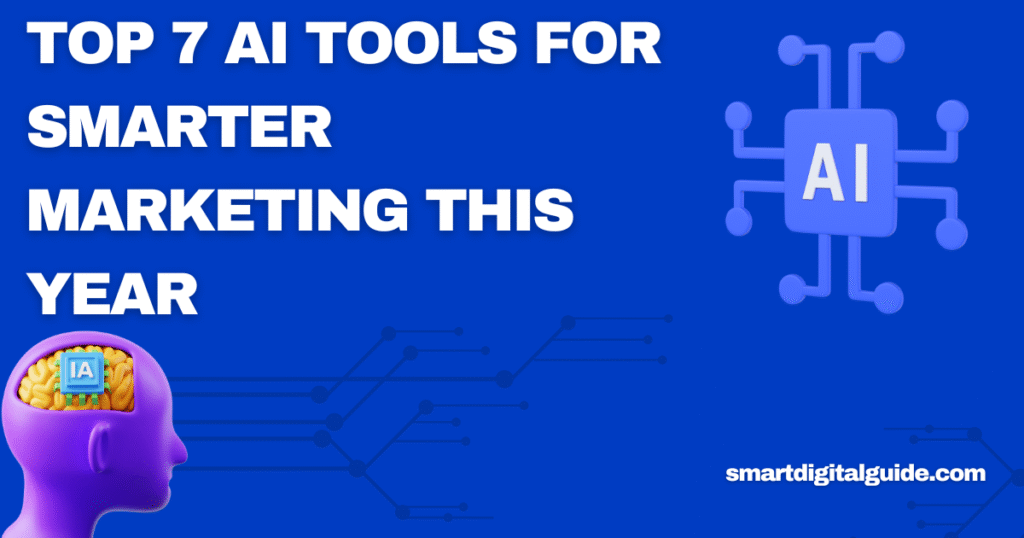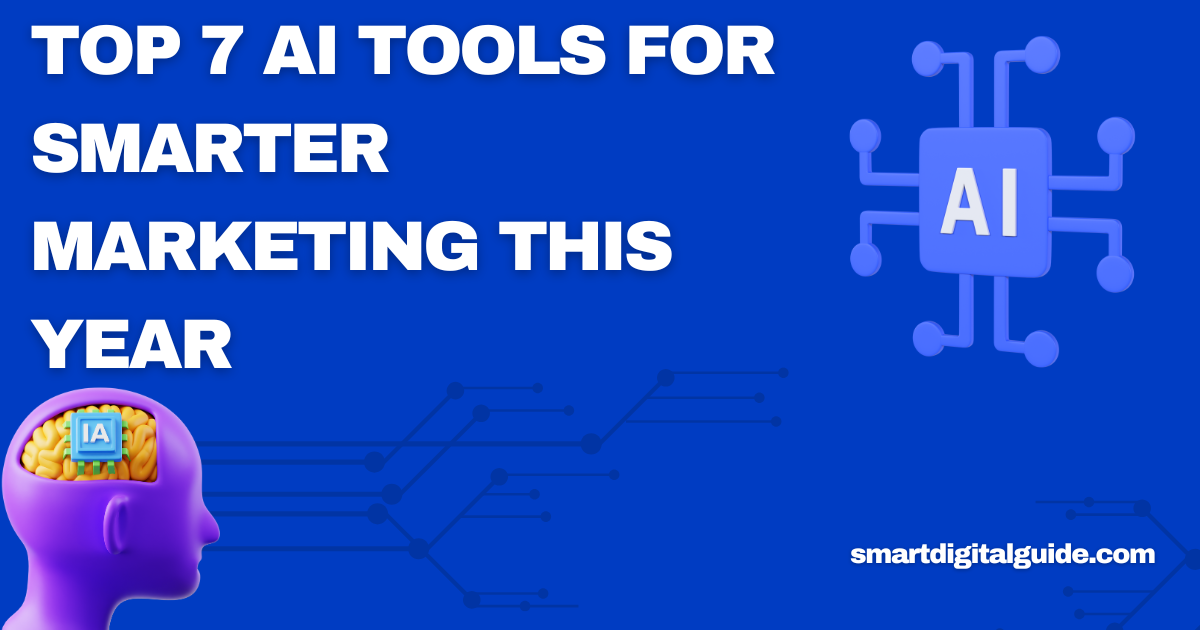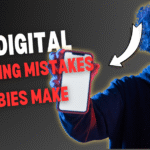Artificial Intelligence (AI) is continually transforming the way companies engage with their audiences. By 2025, AI has evolved from a futuristic idea to an indispensable force driving success in digital marketing. Tools leveraging AI are enabling brands to enhance personalization, utilize predictive analytics, and attain measurable outcomes more swiftly than ever before. This blog will delve into the top seven AI tools that are reshaping digital marketing in 2025, making it smarter, quicker, and more focused on customers.

1. Jasper AI – Scalable Content Creation Powered by AI
In 2025, Jasper AI (previously known as Jarvis) remains a leading option for scalable content generation driven by artificial intelligence. Now featuring integrations with GPT-4.5 and SEO plugins, it effectively produces long-form articles, blog entries, advertisement text, product descriptions, and even scripts for videos aimed at particular audiences. Jasper leverages sophisticated natural language processing (NLP) technology to maintain consistency in tone and ensure grammatical accuracy while optimizing keywords.
Why it’s groundbreaking:
This tool cuts down content development time by over 60%, making it essential for marketers and agencies managing multiple accounts simultaneously.
2. Surfer SEO – Intelligent On-Page Optimization
Surfer SEO merges artificial intelligence with data-based insights to assist marketers in crafting SEO-friendly content instantly. Its compatibility with Jasper and various other AI writing platforms simplifies the process of spotting keyword shortfalls, keeping tabs on competitors, and automatically creating optimized content frameworks.
Why it’s revolutionary:
The AI algorithm utilized by Surfer SEO evaluates over 500 ranking elements from leading pages and provides practical recommendations for achieving higher rankings—crucial for maintaining an advantage in the competitive landscape of AI tools for digital marketing.
3. Adobe Sensei – Creative Intelligence and Tailored Experiences
Adobe Sensei is revolutionizing personalized marketing strategies. This framework harnesses AI and machine learning capabilities across Adobe Creative Cloud, Experience Cloud, and Document Cloud. It aids marketers by scrutinizing customer information to suggest customized experiences, enhance ad targeting, and even automate video editing processes.
Why it’s revolutionary:
Offering real-time analytics alongside scalable creative intelligence, Adobe Sensei empowers ultra-personalized marketing initiatives that foster stronger connections with customers.
4. ChatGPT for Business – Intelligent Customer Interaction
ChatGPT for Business, utilizing OpenAI’s GPT-4.5 technology, is transforming brand communication strategies. This AI solution can be customized to reflect your business’s tone, frequently asked questions, and resource repository to provide customer engagement that is quick, effective, and feels personal across websites, mobile applications, and social media outlets.
Why it’s groundbreaking:
It offers automated 24/7 support for customer service inquiries, lead qualification processes, and onboarding assistance—enhancing conversion rates while lowering operational expenses.
5. Seventh Sense – AI-Driven Email Marketing
Seventh Sense stands out as a hidden treasure in the realm of marketing automation. It leverages behavioral analytics alongside AI to identify optimal times for emailing each recipient on your contact list. This tool works smoothly with platforms like HubSpot and Marketo.
Why it’s groundbreaking:
By tailoring email sending times to individual preferences, it boosts open rates and engagement levels while decreasing unsubscribe instances and enhancing ROI from email marketing efforts.
6. Brandwatch (formerly Crimson Hexagon) – Predictive Analytics and Social Listening
The AI-enhanced features of Brandwatch (previously known as Crimson Hexagon) assist marketers in deciphering consumer behavior through robust predictive analytics. It monitors real-time trends, competitor tactics, and audience sentiment by analyzing millions of data points from social media platforms and the internet.
Why it’s groundbreaking:
This tool allows marketers to anticipate trends and make informed decisions regarding product launches, advertising targeting, and managing crises.
7. Canva AI – Simplifying Visual Design
In 2025, Canva AI is essential for every digital marketer. With intelligent layout recommendations along with AI-powered image editing and design adjustments, Canva AI enables teams to create eye-catching visuals for social media, blogs, and advertisements without requiring an entire design department.
Why it’s innovative:
The platform enhances the emerging digital marketing trends of 2025 such as short-form video thumbnails, carousel posts, and infographic creation—all designed with mobile optimization in mind for easier sharing on social channels.
Concluding Thoughts: The Significance of AI in the Future of Digital Marketing
As we gaze into the horizon, it’s clear that these AI solutions are not merely an option—they are critical for achieving success. They streamline repetitive tasks, anticipate customer behavior, enhance content production, and boost ROI across all channels. Whether you’re a solo entrepreneur or managing a large marketing firm, incorporating AI tools into your digital marketing strategy is vital to staying competitive by 2025.
AI isn’t here to take over marketers’ roles—it’s here to elevate them. With platforms like Jasper, Adobe Sensei, and Brandwatch available at their disposal, the future landscape of digital marketing is becoming increasingly intuitive, data-oriented, and centered around the customer.
Are you prepared to welcome the AI transformation into your marketing approach? Beginwith one tool and expand from there—your future self (and return on investment) will be grateful.









